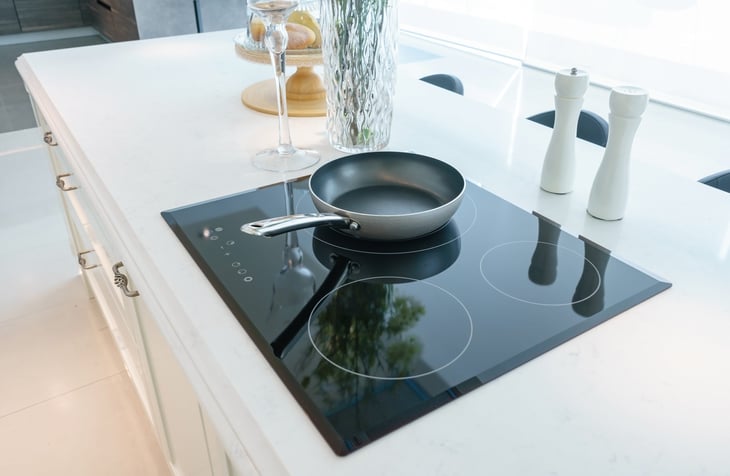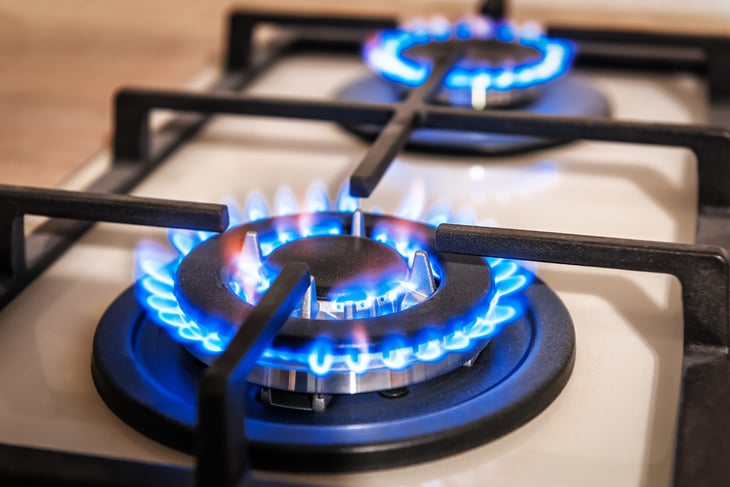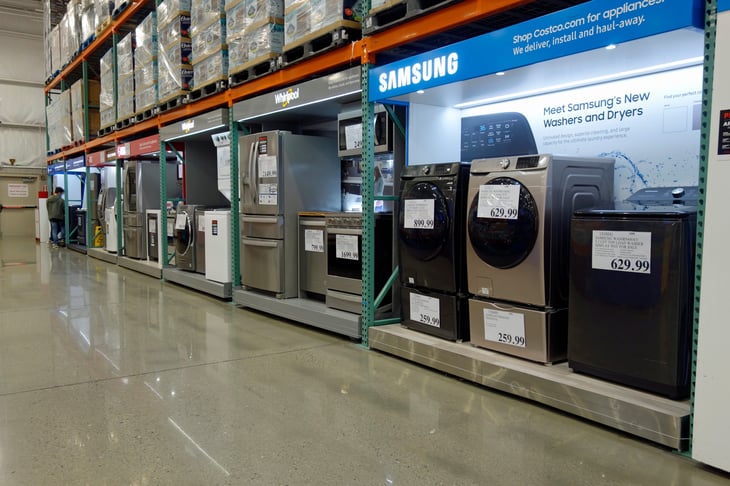
Editor's Note: This story originally appeared on The Penny Hoarder.
The debate about switching from gas stoves to electric cooktops has been heating up lately on social media. So what’s the firestorm of controversy about?
In short, state and national agencies are advising — and in some cases giving tax incentives — for consumers to save energy by switching from gas appliances to electric.
If you’re looking to purchase a new stove or cooktop this year, it may be time to consider electric or induction ranges as a cheaper and potentially safer alternative.
Why Are People Switching From Gas to Electric Appliances?

Ditching gas stoves at home boils down to two main concerns.
First, there are safety concerns about using natural gas in areas that are not well ventilated. Some studies have linked health concerns, specifically asthma, to elevated levels of indoor air pollution from gas-burning appliances.
Second, unlike electric appliances, gas appliances — like ranges and cooktops — release methane gas and other greenhouse gas emissions into the environment.
Stanford researchers estimate the use of gas stoves in the United States puts the equivalent of tailpipe emissions from 500,000 cars into the environment every year.
“Although carbon dioxide is more abundant in the atmosphere, methane’s global warming potential is about 86 times as great over a 20-year period and at least 25 times as great a century after its release,” according to Stanford Woods Institute for the Environment’s 2022 report.
What Are the Pros and Cons of Switching From Gas to Electric?

When shopping for appliances, most consumers interested in saving energy look for the Energy Star rating and leave it at that.
Gas ranges have long been considered superior for cooking and generally are more energy efficient, so switching to an electric or induction range may seem like a step down for home cooks.
Here are the pros and cons of ditching gas and switching to cooking with electricity.
Pros Versus Cons of Switching From Gas to Electric

Pros:
- Fewer emissions/indoor pollutants than gas
- Rebate and tax credits may be available
- Cheaper than gas
- Fewer health concerns
- Induction heats/cools faster
Cons:
- May require upgrade to electric service
- Professional installation if wiring is done
- May require new cookware
- Induction cooktop can be hard to clean
- Electric can be slower to heat
The costs of switching from electric to gas depend on whether your house needs an electrical upgrade to add a stove.
Before you start panicking, the Inflation Reduction Act of 2022 provides both a tax credit and rebates aimed at cutting the cost of electrical changes for homeowners.
Can the Gas Stove Rebate in the Inflation Reduction Act Save You Money?

If you’re in the market to replace your gas stove or an existing electric stove in the near future, you’re in luck.
The Inflation Reduction Act includes rebates and a tax credit for purchasing and installing an energy-efficient heat pump water heater, creating the infrastructure to support electric vehicles and buying new electric appliances.
This goes beyond the usual rebates for Energy Star products and includes electric and induction cooktops, ranges or stoves, and even wall ovens.
How Much Is the Electric Appliance Rebate?

The legislation sets aside $4.5 billion in funding for electric appliance rebates and also includes stipulations about how much homeowners can receive on qualifying appliances.
Homeowners are eligible for an $840 rebate on the purchase of an electric or induction stove, cooktop, range or oven — plus up to $500 to cover the costs of converting from natural gas to propane or electric.
For those who need to upgrade electric service, rebates include $2,500 for electric wiring and $4,000 for an electric load service center upgrade.
Do I Qualify for the Electric Appliance Rebate?

Before you ditch your gas stove, there are income limits to qualify for a rebate.
- You’ll receive 100% of the rebate if your household income is 80% or less of the median family income in your area.
- If your income is 80% to 150% of the median family income, you’ll be eligible for 50% of the rebate.
- If you make 150% or more of the area median income, you won’t be eligible for this rebate.
Data from the U.S. Department of Housing and Urban Development (HUD) will be used to determine income levels in your area. You can use the HUD database to check your eligibility.
Which Energy-Efficient Appliances Qualify for the Rebate?

The legislation is vague on which appliances qualify for the rebate and doesn’t specifically prohibit funding from being used in alternative ways.
For instance, you might be able to replace your old electric range with a newer electric model and still qualify for the rebate. Each state will determine how the rebate can be applied.
Other appliances eligible for rebates include those that maximize energy efficiency, like an electric heat pump water heater.
How and When Will the Electric Appliance Rebate Be Available?

The federal government has made the funding for these electric appliance rebates available, but it’s up to each state to implement the program.
The U.S. Department of Energy has provided a rough framework for the tax credit and rebates on their website.
While it might take a while for some of these rebate programs to get off the ground, the funding is available through 2031.
While it’s best to wait until the rebate program launches in your state, if you have to buy an electric stove or heat pump soon, save your receipts and stay tuned.





Add a Comment
Our Policy: We welcome relevant and respectful comments in order to foster healthy and informative discussions. All other comments may be removed. Comments with links are automatically held for moderation.